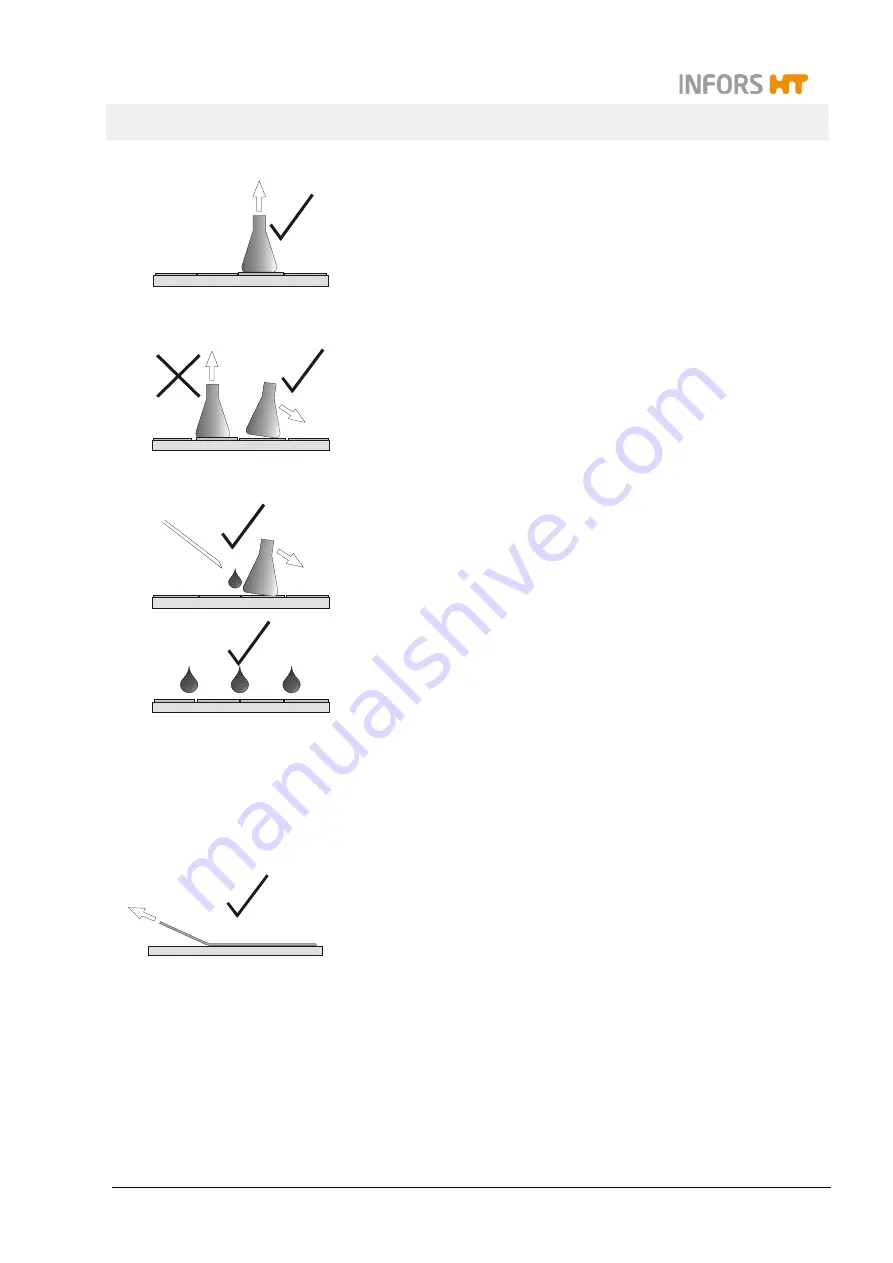
Multitron - Operating Manual
Accessories
Page
64
of
158
20 August 2020
Prior to the shaking process, gently pull on every vessel to en-
sure they are all stuck on firmly.
If the humidity is too high or the temperatures are too low or if
there are extreme jumps in temperature (e.g. when using the
timer function), keep an eye on condensate. Condensate can
result in vessels detaching from the adhesive matting.
To remove vessels, gently and evenly pull or push on the neck
and wait a few seconds.
Never use force!
In case of large vessels, it can take 20 to 30 seconds until they
detach from the adhesive matting.
Vessels that are stuck can be removed from the adhesive mat-
ting by using a syringe to inject water under the flask.
Due to their shape (wide base, short neck), Fernbach flasks in
particular can be difficult to remove. If necessary, cover part of
the adhesive matting with the protective foil provided.
The adhesive power can deteriorate over time due to dust and
dirt. To clean and restore full adhesive power, thoroughly wipe
down the surfaces with a brush or a dish sponge and clear wa-
ter with mild detergent (dishwashing liquid). Then let dry over-
night.
Quaternary ammonium compounds are suitable for disin-
fection.
Consider application times and thoroughly rinse with water. If
the adhesive matting is disinfected at regular intervals, it might
need to be replaced sooner.
To replace the adhesive matting proceed as follows:
1
.
Thoroughly spray the tray with water
2
.
On one side, peel the adhesive matting off the tray and pull it
up diagonally.
3
.
Use acetone to degrease the tray and apply new
wet
adhesive
matting (according to separate installation instructions). Only
peel off protective foil prior to use.
The removed adhesive matting can be reused and can be reapplied
after regeneration in water.
Adhesive matting that is severely worn due to aging must be
replaced. This also applies if a reduction in the adhesive force
is detected.






























